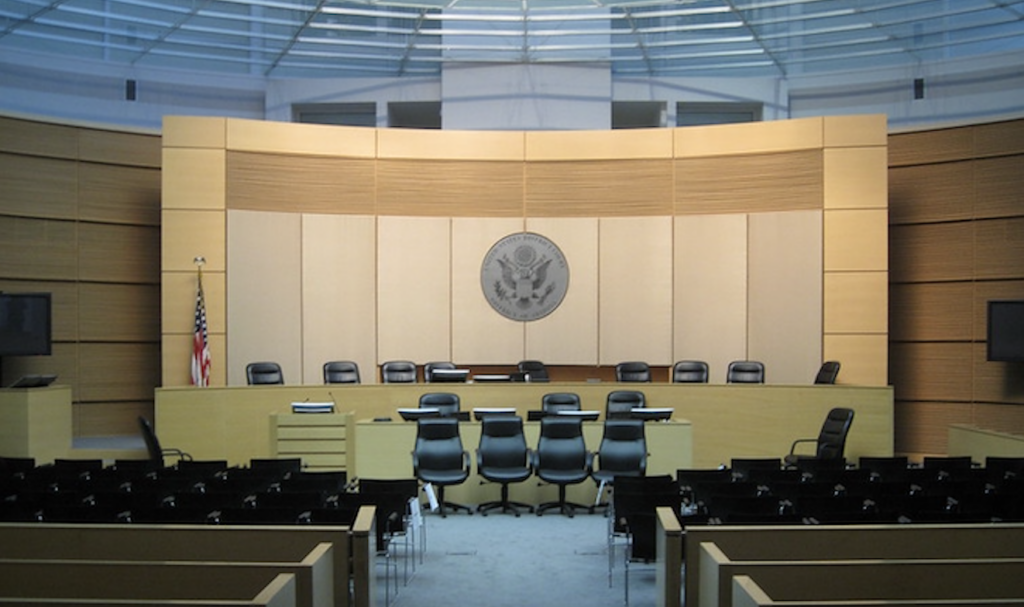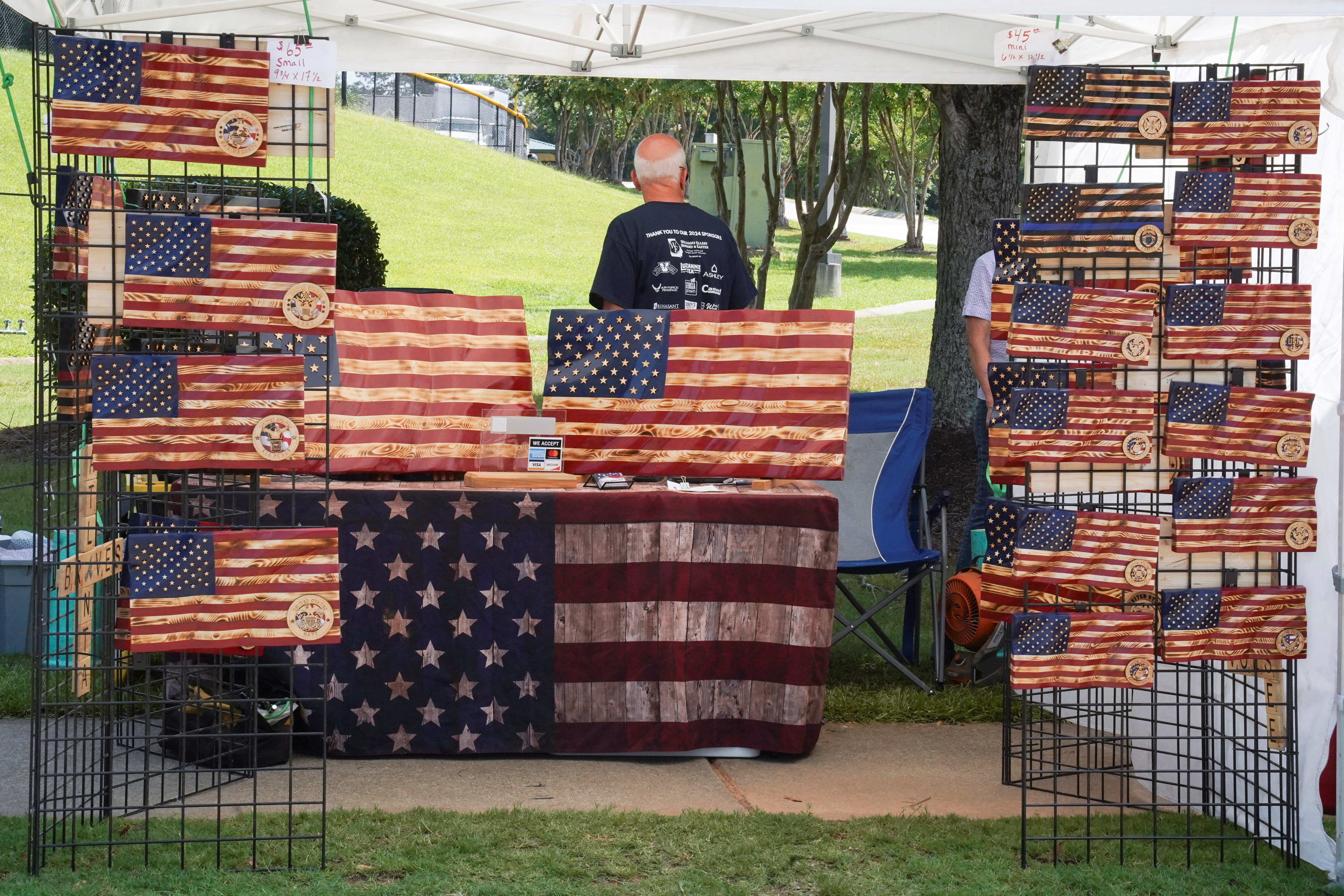Court rules nearly 98,000 Arizonans whose citizenship hadn’t been confirmed can vote the full ballot
PHOENIX — The Arizona Supreme Court ruled Friday that nearly 98,000 people whose citizenship documents hadn’t been confirmed can vote in state and local races.
The court’s decision comes after officials uncovered a database error that for two decades mistakenly designated the voters as having access to the full ballot.
Secretary of State Adrian Fontes, a Democrat, and Stephen Richer, the Republican Maricopa County recorder, had disagreed on what status the voters should hold. Richer asked the high court to weigh in, saying Fontes ignored state law by advising county officials to let affected voters cast full ballots.
Fontes said not allowing the voters who believed they had satisfied voting requirements access to the full ballot would raise equal protection and due process concerns.
- It said county officials lack the authority to change the voters’ statuses because those voters registered long ago and had attested under the penalty of law that they are citizens.
- The justices also said the voters were not at fault for the database error and also mentioned the little time that’s left before the Nov. 5 general election.
Arizona is unique among states in that it requires voters to prove their citizenship to participate in local and state races. Voters can demonstrate citizenship by providing a driver’s license or tribal ID number, or they can attach a copy of a birth certificate, passport or naturalization documents.
- Arizona considers drivers’ licenses issued after October 1996 to be valid proof of citizenship. However, a system coding error marked nearly 98,000 voters who obtained licenses before 1996 — roughly 2.5% of all registered voters — as full-ballot voters, state officials said.
- The error between the state’s voter registration database and the Motor Vehicle Division would not have impacted the presidential race.
- But that number of votes could tip the scales in hotly contested races in the state Legislature, where Republicans have a slim majority in both chambers.
In a post on the social platform X, Richer thanked the court for quickly reviewing the case and Fontes for partnering with him to address the error.
- It comes down to the partisan breakdown of the affected voters — which includes 36,539 Republicans, 26,878 Democrats and the rest are part of other parties or have no designated party.
- In a press conference on Tuesday, Fontes said that a majority of those voters are registered as Republicans.
- And, as Arizona Central noted, GOP control of the state’s Legislature is at stake in November — meaning that, if the Arizona Supreme Court rules that the affected voters can’t cast their ballots in state and local elections in November, it could cost them control of the Arizona House of Representatives and Senate.
About that awkward position Swoboda is now in: In previous lawsuits, the Arizona GOP has explicitly argued in favor of strictly enforcing the state’s documentary proof of citizenship law, no matter the circumstances. In a 2022 lawsuit challenging the constitutionality of Arizona’s proof of citizenship laws, for example, Arizona republicans argued that “requiring documentary proof of citizenship and residency on the state form does not unduly burden the right to vote.”
In their most recent brief, the Arizona GOP argued that the National Voting Registration Act (NRVA) prohibits voter list maintenance within 90 days of a general election for federal office — and thus the affected voters should vote on the full ballots they’re scheduled to receive. But in the 2022 citizenship requirement challenge lawsuit, they also argued that “Arizona’s list maintenance for citizenship status does not violate the NVRA’s 90-day blackout period.”
And so, for Swoboda and the Arizona GOP — who’ve spent years defending the state’s documentary proof of citizenship law, falsely claiming in court and over social media that it helps prevent noncitizens from voting in elections — they are, for the first time, fighting against the restrictive law that has impacted Arizona voters.
Arizona Laws Battled by Voting Groups Get Revived on Appeal (1)

- Groups don’t have standing for their challenge: 9th Cir.
- Law cancels registrations if voter’s registered elsewhere
Arizona prevailed Friday against nonprofits suing to block a pair of voting laws the state says combat fraud but the groups says suppresses the vote.
A statutory provision giving Arizona counties the ability to cancel a voter’s registration if the county learns the voter registered in another county can be enforced, the Ninth Circuit said Friday in a divided opinion.
Another Arizona provision making it a felony for someone to provide “a mechanism for voting” to a person registered in another state was also reinstated by the US Court of Appeals for the Ninth Circuit.
The ruling vacated a lower court injunction putting those provisions on hold.
The measures, passed in Senate Bill 1260, were signed into law by Arizona Gov. Doug Ducey (R) in 2022. The three nonprofits sued to block the provisions and persuaded an Arizona federal trial court to issue a preliminary injunction shortly after they took effect in 2022.
The lower court ruled that the cancellation provision likely conflicts with federal voting rules set forth in the National Voter Registration Act and that the felony provision is likely unconstitutionally vague. The state appealed to the Ninth Circuit.
The plaintiff groups—Arizona Alliance for Retired Americans, Voto Latino, and Priorities USA—haven’t shown the requisite harm for standing to challenge the cancellation provision, Judge Kenneth K. Lee said for the Ninth Circuit majority.
“With or without the Cancellation Provision, the plaintiffs can still register and educate voters—in other words, continue their core activities that they have always engaged in,” Lee wrote.
The judge cited the 2024 US Supreme Court ruling in FDA v. Alliance for Hippocratic Medicine finding industry associations didn’t have standing to challenge the FDA’s regulation of the abortion drug mifepristone.
Attorneys reacting to the high court ruling have said they expect lower courts to scrutinize associations’ claims of harm under its reasoning.
Vagueness Rejected
The felony provision isn’t unconstitutional because, read in context with the rest of the statute, the phrase “mechanism for voting” wouldn’t encompass lawful get-out-the-vote activities, said Lee, an appointee of Republican nominee and former president Donald Trump.
“We disagree with the district court’s conclusion that the phrase ‘mechanism for voting’ in the Felony Provision is so vague that it would likely sweep in constitutionally protected activity such as voter outreach and registration,” the judge wrote.
Judge Daniel P. Collins, also appointed by Trump, joined in the majority opinion.
Even if the voting groups had standing, the cancellation measure doesn’t violate the NVRA, Lee added in a separate concurrence.
The Arizona law’s requirement that a county recorder receive confirmation from another county that a voter has registered in the other county before canceling the voter’s registration is sufficient to comply with NVRA requirements, the concurrence said.
Judge
The groups have standing because they’ve sufficiently alleged their finances would be hit as they helped voters stay on the rolls if the law takes effect, Nguyen said. “The injury at issue—plaintiffs’ diversion of resources to ensure that voters cancel prior registrations—is certain to occur if the Cancellation Provision takes effect,” the judge wrote.
Nguyen, who was appointed to the circuit court by former President Barack Obama, concurred in the majority decision on the felony provision.
Herrera Arellano LLP and Elias Law Group LLP represent the voting groups.
The case is Ariz. All. for Ret. Ams. v. Mayes, 9th Cir., No. 22-16490, 9/20/24.
(Updates story with additional reporting on the ruling.)
To contact the reporter on this story:
To contact the editors responsible for this story:
9th Circuit Reinstates Arizona Voter Suppression Law

Arizona’s 2022 controversial voter registration and mail-in voting law will be reinstated due to a ruling from the 9th U.S. Circuit Court of Appeals.
Signed into law in June 2022, Senate Bill 1260 includes three harmful provisions: the cancellation provision, the felony provision and the removal provision.
- The cancellation provision requires county recorders to cancel a voter’s registration if they receive confirmation that the voter is registered to vote in another Arizona county;
- The felony provision makes it a felony to forward a mail-in ballot to a voter who may be registered in another state and
- The removal provision creates a process to remove voters from the state’s permanent vote-by-mail list if the voter is registered in another county.
In September 2022, just two days after the law went into effect, a federal judge temporarily blocked the cancellation provision and the felony provision due to a lawsuit brought by voting rights groups. The judge found that both provisions likely violate federal law and the U.S. Constitution. The removal provision was allowed to go into effect.
Former Secretary of State Mark Brnovich (R) appealed the court’s decision partially blocking the law to the 9th Circuit, which heard the appeal last year.
In its ruling today, the court determined that the plaintiffs did not have standing for the cancellation provision because they failed to show how the law would directly harm the organizations’ core activities. One member of the three-judge panel dissented, writing that she would affirm the district court’s preliminary injunction because the “cancellation provision likely violates the National Voter Registration Act.”
While the plaintiffs did have standing for the felony provision, the panel unanimously ruled that “to knowingly provide a mechanism for voting to another person registered in another state” was not unconstitutionally vague. The judges determined that the phrase “mechanism for voting” in the context of the law suggests only illegal acts of voting, not voter outreach or registration. This negated the plaintiffs’ argument that the felony provision would criminalize their voter outreach and registration efforts.
The case was remanded back to district court where litigation will continue.
.jfif)
.jfif)
.jfif)






No comments:
Post a Comment